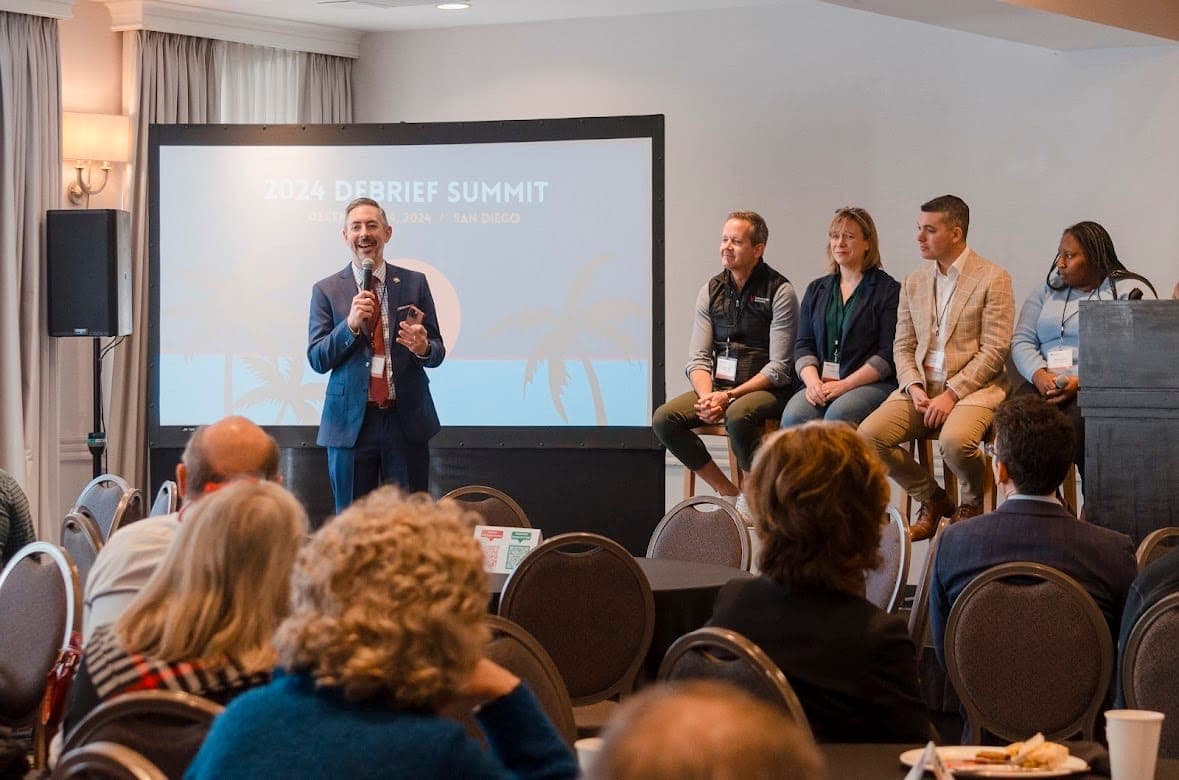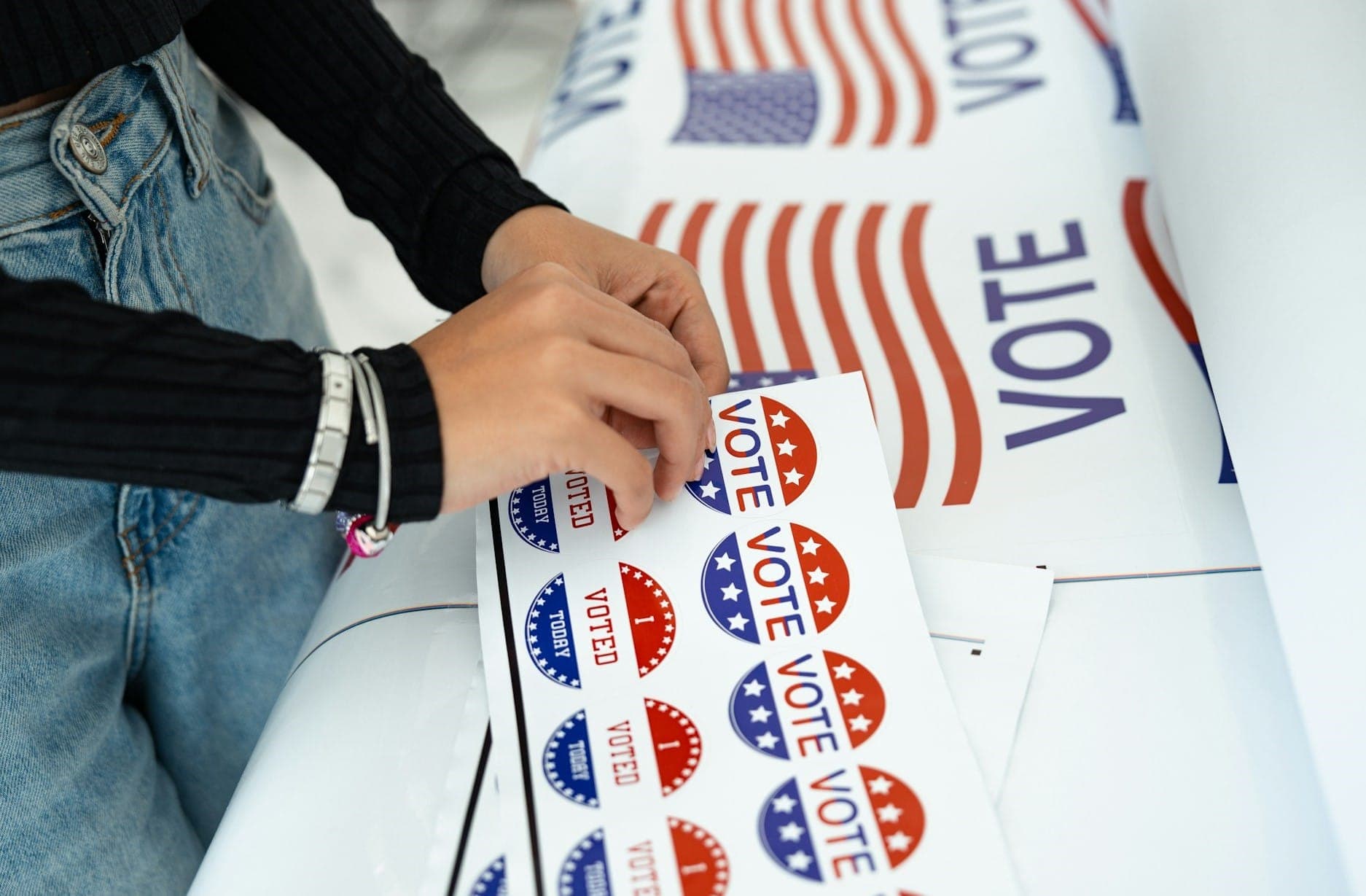Down, But Not Out: Nonpartisan Election Reformers Maintain Their Resolve

Nonpartisan election reformers have chosen not to hang their head in defeat after a few statewide losses in 2024. Instead, their mood was surprisingly optimistic when they met in San Diego for the National Association of Nonpartisan Reformers’ (NANR) annual summit.
“We had a great turnout,” said NANR Executive Director Andy Moore. “We had over 130 people show up, which was more than we expected. Everyone was really engaged.”
NANR is a coalition of individuals and organizations dedicated to structural electoral reforms that prioritize the public interest and incentivize robust competition among many political parties and independent candidates.
Its members may focus on different proposals, from primary reform to voting methods to gerrymandering, but they are united by a shared goal: A level playing field for all voters and candidates who would participate in a truly democratic process.
The group hosted its 8th annual summit on December 2-4 in San Diego, California. Moore explained that the invitation-only event featured robust large-group conversations led by leaders in the movement, but also important breakout sessions to discuss lessons learned.
This was the main focus of the event: To debrief the 2024 election and discuss the future of the election reform movement.
“The summit always feels like a family reunion, and it felt optimistic,” Moore said.
He added that he was concerned that people would feel down after an election cycle marred by disappointment. Most statewide efforts to implement nonpartisan structural election reform across the US fell short this year.
However, despite the losses, Moore remarked that people came to the summit with a renewed sense of purpose and better appreciation for what the opposition looks like – namely, the partisan interests that reject changing the status quo.
“What we saw was opposition from the political establishment, which we expected,” he said. “What we need now is a continued education effort among the electorate.”
“People who are informed on our issues are deeply passionate. We know when we do focus groups that people support reform. What comes out is if people are unsure or skeptical about who is running the campaign then they are hesitant and might vote no.”
One of the consistent strategies from the two major parties was to create a boogeyman for people to be unsure about. They talked about special interests from out-of-state and claimed groups that don’t represent them were trying to force their agenda on them.
The irony should not be lost on anyone.
Moore said the message that came out of the 2024 NANR Summit was reformers “should be bolder” and “more transparent with what we are doing and funding to accurately demonstrate that voters in each of these states are the ones leading the charge.”
“In today’s fragmented media environment, it is more difficult to reach people,” he added.
“Voters are not all just watching the nightly news. They are watching thousands of different YouTube channels and Instagram feeds and TikTok. Getting your message out is more difficult because it is a very noisy world.”
He emphasized the need for stronger grassroots campaigns and an acknowledgment that reform is a long game. “We should not think about the next two-year cycle. We should think about the 10-year cycle,” he explained.
The 2024 election was also not devoid of success stories. Open primaries and ranked choice voting scored a major victory in Washington DC. Alaska voters rejected repeal of nonpartisan election reform. Portland voters responded positively to ranked choice voting.
In addition, new reform efforts are already in the works. In Oklahoma, for example, a constitutional amendment was announced that would implement nonpartisan primary reform in a state known for having the worst voter participation in the country.
The NANR summit also featured an award ceremony for reform leaders who made progress in 2024 and for lifetime commitment to the movement. Recipients included Rob Richie, co-founder and former CEO of FairVote. Moore called Richie a “true pillar of the community.”
A lifetime achievement award was also presented to Dan Howle, executive director of the California-based Independent Voter Project, who Moore said has “spent decades of his life advocating for the rights of voters who choose not to affiliate with a party.”
NANR presented a champion of reform award to Lisa Rice, who proposed and spearheaded the initiative to open primary elections to 73,000+ independent voters in Washington DC and implement ranked choice voting in all DC elections.
Moore called Rice “a real hero of the movement."
 Shawn Griffiths
Shawn Griffiths





